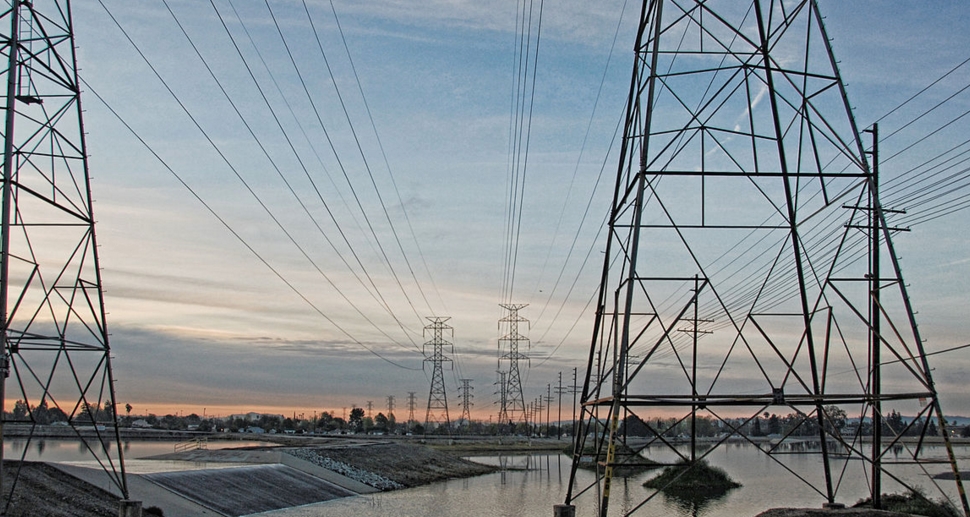Energy-intensive bitcoin mining raises environmental concerns
06/06/2022 / By Ramon Tomey

Concerns regarding the environmental impact of bitcoin have surfaced despite its rising prominence. Many have criticized the cryptocurrency’s mining process for using up huge amounts of energy. Because of this, the U.S. treasury secretary warned of bitcoin’s “staggering” energy demand and slammed it as “extremely inefficient.”
CNBC reported Feb. 22 that U.S. Secretary of the Treasury Janet Yellen voiced out her concerns about the cryptocurrency. She told network host Andrew Ross Sorkin: “I don’t think that Bitcoin … is widely used as a transaction mechanism. It’s an extremely inefficient way of conducting transactions, and the amount of energy that’s consumed in processing those transactions is staggering.”
Bitcoin mining is enormously energy intensive – and was designed to be so. According to the Cambridge Bitcoin Electricity Consumption Index (CBECI), mining the cryptocurrency uses a total of 128.84 terawatt-hours every year. The amount is much more than the yearly consumption of Argentina and Ukraine.
When bitcoin first began in 2009, it was still possible to mine for the cryptocurrency on a normal computer. There are only 21 million bitcoins that can be mined, and doing so requires solving complex math problems on a computer. However, the math problems become more complicated as the number of bitcoins to be released becomes fewer and fewer. Currently, 18.5 million bitcoins have been released – making an average computer insufficient for the complex algorithms.
As the price of bitcoin rises and only 2.5 million bitcoins are yet to be released, more people are driven to jump on the cryptocurrency hype. University of Chicago economics professor Gina Pieters commented: “They want to get that revenue, and that’s what’s going to encourage them to introduce more and more powerful machines in order to guess this random number. And therefore, you will see an increase in energy consumption.”
Power-intensive bitcoin mining calls for cheaper energy sources
According to a report by The Guardian, cryptocurrency proponents argue that mining can be powered using renewable energy sources. But the huge energy demand motivates miners to look for cheaper energy sources to sustain operations. (Related: As Bitcoin wastes the world’s electricity, Bitcoin mining now a money-LOSING proposition.)
The Cambridge Centre for Alternative Finance (CCAF) elaborated on this concept. “The more machines a miner operates, the more likely [they] will find the solution to the puzzle. However, more machines also means that more electricity is needed to run and cool the equipment — which in turn results in higher costs for the miners in question. Miners are thus always searching for abundant electricity sources at the lowest possible price,” it said. The CCAF is responsible for maintaining the CBECI.
Coal is the first thing that comes in when a cheap electricity source is mentioned, The Guardian noted. China has seen more cryptocurrency mining operations compared to other countries, and about two-thirds of its electricity still comes from coal-fired power plants. The CBECI wrote: “There are valid concerns that Bitcoin’s growing electricity consumption may pose a threat to achieving the United Nations Sustainable Development Goals in the future.”
Furthermore, the lack of a government body or organization keeping tabs on where bitcoin is mined and what kind of energy cryptocurrency miners use makes transparency difficult. Thus, there is no way to find out if miners use fossil fuels or renewable energy for their operations.
Mining rigs can also move from place to place, driven to where energy prices are the lowest. Camilo Mora, a geography and environment professor at the University of Hawaii at Manoa commented: “The places where you [mine] bitcoin can be moved around. [In] some cases, you don’t even know where they are.” (Related: Bitcoin mining rigs now LOSING money daily as the Bitcoin Ponzi scheme continues to unravel.)
As bitcoin and other cryptocurrencies gain ground, their huge energy requirements will slowly become a threat to power grids worldwide. Bitcoin expert Alex de Vries shared to BBC News the possible consequences of adapting bitcoin as a global reserve currency. The founder of the Digiconomist website said: “[The] bitcoin price will probably be in the millions, and those miners will have more money than the entire [U.S.] federal budget to spend on electricity.”
“We’d have to double our global energy production for bitcoin,” de Vries remarked.
Visit BitcoinCollapse.news to read more about the exorbitant energy requirements of cryptocurrency mining.
Sources include:
Submit a correction >>
Tagged Under:
bitcoin, Bitcoin mining, climate, climate change, coal-fired power plants, crypto, cryptocurrency, decentralized currency, digital exchange, electricity, energy consumption, fossil fuels, greenhouse gases, mining rigs, power consumption, power grid, renewable energy
This article may contain statements that reflect the opinion of the author
RECENT NEWS & ARTICLES
Electricity.News is a fact-based public education website published by Electricity News Features, LLC.
All content copyright © 2018 by Electricity News Features, LLC.
Contact Us with Tips or Corrections
All trademarks, registered trademarks and servicemarks mentioned on this site are the property of their respective owners.
















